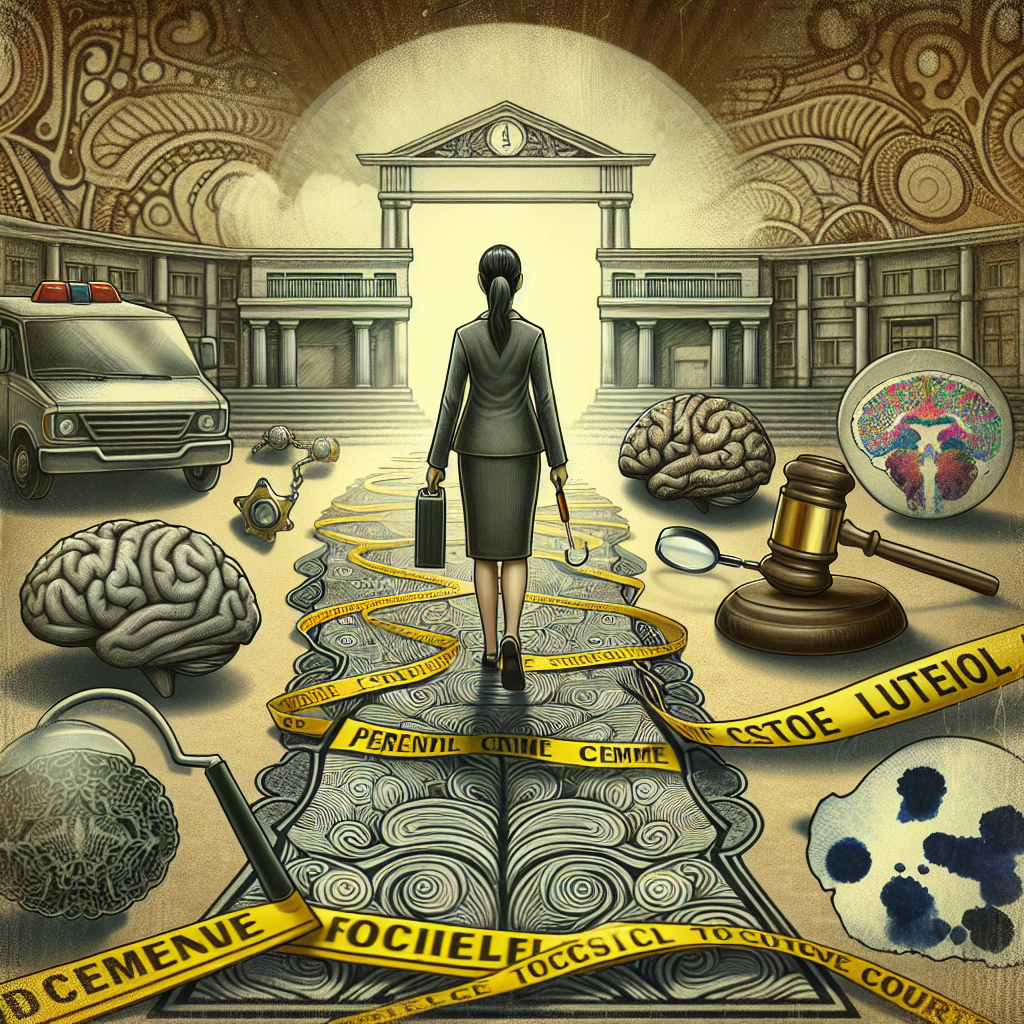
Introduction
In a world where crime stories captivate audiences through books and movies, the real-life journey from a crime scene to the courtroom is often shrouded in ambiguity. One figure stands at the crossroads of psychology and law enforcement – the forensic psychologist. The path they tread is critical in unraveling the complexities of human behavior related to crime. From Crime Scene to Courtroom: The Forensic Psychologist’s Journey is more than just a career; it’s a vital process that shapes justice.
As we delve into the multifaceted role of forensic psychologists and the significance of their work, we will uncover unique insights and real-world applications that illustrate how they contribute to the judicial process. Whether you’re a psychology student, a legal professional, or simply curious about the intersection of psychology and law, this journey promises to be intriguing and enlightening.
Understanding Forensic Psychology
What is Forensic Psychology?
Forensic psychology combines the principles of psychology and the legal system. Forensic psychologists assess, treat, and provide expert testimony for individuals involved in legal proceedings. Their insights can be instrumental in cases ranging from criminal defense to family law disputes.
Key Responsibilities of Forensic Psychologists
- Assessment of Competency: Evaluating whether a defendant is competent to stand trial.
- Criminal Profiling: Analyzing behaviors and patterns to create profiles of offenders.
- Expert Testimony: Providing insights in court related to psychological evaluations.
- Therapeutic Services: Offering psychological support to victims and offenders.
The Forensic Psychologist’s Role in Criminal Cases
Forensic psychologists are often called upon in various stages of criminal cases. Their expertise helps in understanding the motivations behind crimes, which can significantly affect legal outcomes.
Why Is This Journey Important?
The journey from crime scene to courtroom is essential not only for achieving justice but also for understanding the human psyche. Insights derived from forensic psychology can lead to improved interventions and crime prevention strategies.
The Forensic Psychologist’s Journey: A Step-by-Step Guide
Step 1: The Crime Scene Investigation
The journey begins at the crime scene. Forensic psychologists may be involved in assessing the mental state of a suspect or understanding the psychological factors involved in the crime.
- Case Study: The Unabomber
Theodore Kaczynski, known as the Unabomber, was evaluated by forensic psychologists who analyzed his motivations and behaviors, contributing insights that were crucial in his capture and legal proceedings.
Step 2: Psychological Assessment
Once the investigation begins, forensic psychologists are required to conduct detailed psychological evaluations of suspects, victims, and witnesses.
Tools Used in Assessment
| Tool | Description |
|---|---|
| MMPI (Minnesota Multiphasic Personality Inventory) | Assess personality traits and psychopathology. |
| Rorschach Inkblot Test | Evaluate subconscious reasoning and emotional functioning. |
The outcomes of these assessments can provide valuable context in cases where motive, intent, and understanding of behavior are crucial.
Step 3: The Report
The findings from assessments are compiled into comprehensive reports. These documents serve as formal records that can be used in court, providing clarity and depth to the evaluation.
Importance of Detailed Reports
A well-structured report can make a significant difference in a case, as it provides attorneys and judges with critical insights into a defendant’s psychological status.
Step 4: Expert Testimony
In court, forensic psychologists may be called upon to present their findings. Their ability to communicate complex psychological concepts in layman’s terms can make a profound impact on legal outcomes.
- Case Study: The Trial of Andrea Yates
Andrea Yates, who drowned her children in a bathtub, was examined by forensic psychologists. Their testimony regarding her mental health played a pivotal role in her trial and subsequent verdict.
Step 5: Post-Conviction Analysis
In some cases, forensic psychologists continue to provide analysis even after a conviction. Their insights can influence sentencing decisions or rehabilitation approaches.
The Ripple Effect of Forensic Psychology
The influence of forensic psychology extends beyond individual cases. Insights gleaned from these cases can change laws, improve intervention programs, and help in understanding the socio-environmental factors that contribute to criminal behavior.
Table: Key Statistics on Forensic Psychology Impact
| Study Focus | Findings |
|---|---|
| Recidivism Rates Among Offenders | Programs that incorporate psychological evaluations reduce recidivism by 30%. |
| Jury Decision Influences | Jurors are 40% more likely to rule favorably when psychological evaluations support the defendant’s case. |
Questions Frequently Asked About Forensic Psychology
FAQ 1: What qualifications are needed to become a forensic psychologist?
To become a forensic psychologist, one typically needs a doctoral degree in psychology, specialized training in forensic practices, and relevant licensure.
FAQ 2: How does a forensic psychologist differ from a criminal psychologist?
While both fields deal with mental health issues related to crime, forensic psychologists often work directly within the legal system, providing assessments and testimony in court, whereas criminal psychologists focus primarily on understanding criminal behavior.
FAQ 3: Can forensic psychologists work in civil cases?
Yes, forensic psychologists can also provide evaluations in civil cases, including custody disputes, personal injury cases, and more.
FAQ 4: What methodologies do forensic psychologists employ?
Forensic psychologists use various methods, including interviews, behavioral assessments, and standardized psychological tests to gather information relevant to legal proceedings.
FAQ 5: How important is the role of forensic psychology in preventing crime?
Forensic psychology plays a crucial role in crime prevention by contributing to research and understanding of criminal behaviors, which can inform policies and programs designed to mitigate risk.
Conclusion
The journey From Crime Scene to Courtroom: The Forensic Psychologist’s Journey is a critical pathway that influences the judicial process and enriches our understanding of human behavior in the context of crime. Through psychological evaluation and expert testimony, forensic psychologists bridge the gap between psychology and law, ensuring justice is not just served, but understood.
By understanding the intricate workings of this journey, we can appreciate the profound impact forensic psychology has on the criminal justice system. As you move forward, consider how this knowledge can empower you to engage in discussions about justice, contribute to policy changes, or even inspire a future career in this dynamic field.
The contributions of forensic psychologists are irrefutable, and as we continue to explore this area, we will likely uncover even more ways in which their insights can guide society toward a better understanding of crime and justice.















